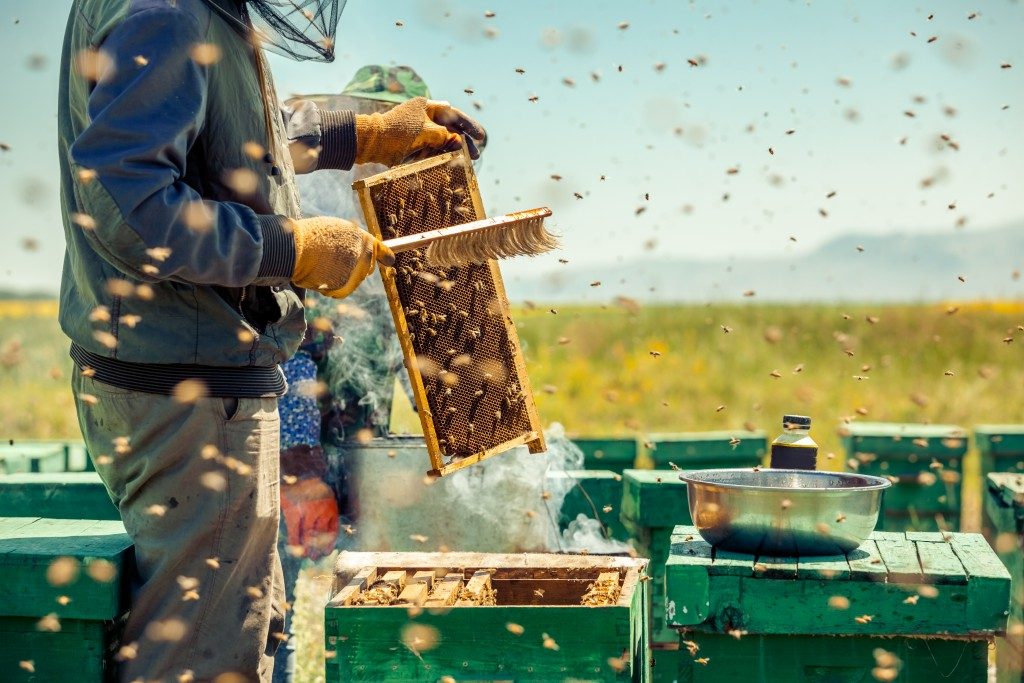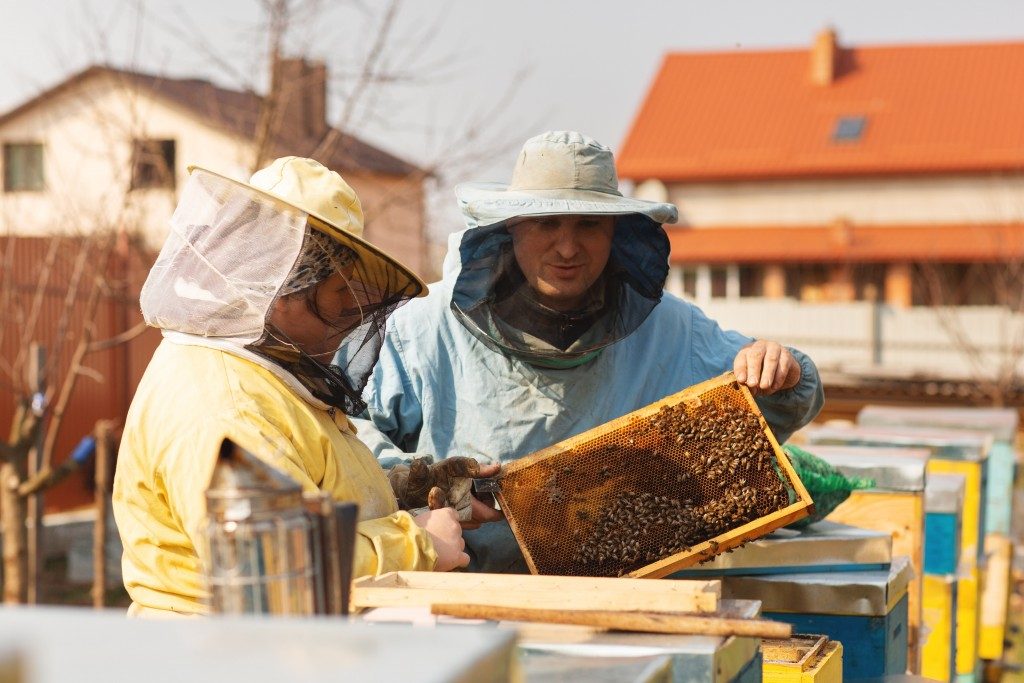People have been keeping bees for thousands of years. The contents of a beekeeping kit may have changed with time, but the journey of a beekeeper is as fascinating as ever. There are numerous hurdles ahead; yet, if you pursue the hobby, the rewards are great.
Beekeeping or apiculture is not as complicated as it sounds. You can be an apiarist with very little monetary capital, but you must learn how to become one. Here’s a guide on how to get started.
The Honeybee
There are a number of things to learn, including setting up a hive, managing different types of hives, harvesting honey, beeswax, and other byproducts. You must learn how to raise bees as well. It may seem like a lot to learn, but you must find time to do so. Firstly, you have to buy a colony of honeybees, or endeavor to find a hive in the wild. You cannot be an apiarist without bees.
Honeybees are delightful and special social insects. They function as a singular organism, even as a colony consists of countless insects. The leader of a colony is a female whose singular function is to lay eggs. Worker bees are underdeveloped female insects, while drones are males. The bees that sting are females of the species.
Getting Your Own Honey

Bees produce honey from nectar. Honey is the primary diet of bees. Bees collect nectar, and worker bees collect pollen from flowers, honeydew (exudate from insects), and propolis (resinous material). Bees need water as well. To make honey, bees process the nectar in their stomach, where it is mixed with enzymes. The substance is passed around from one bee to another until the regurgitate ends up in honeycombs in the hive. As water evaporates from the substance, the honey thickens. The bees cover the comb with wax to protect the honey.
Wouldn’t it be nice to have your own source of honey? You can only be sure the honey you get is pure if you go to a farmer’s market or a beekeeper’s stall. There’s no need to drive a long way or wait for fresh produce to be available if you have your own backyard hive.
Becoming an Apiarist
There could be a beekeeper group in your territory. It helps to reach out to them. The first thing you need to find out on your own is whether beekeeping is legal where you reside. If you have neighbors, make sure they don’t have a problem with your new hobby. Having a huge tract of land and areas of natural shade are great advantages.
At the outset, evaluate whether you have enough food for the bees. You can still raise bees in the yard even if you don’t have enough flowers. Plant more of the plants they need as source of food, and survey surrounding areas for availability of flowering shrubs and trees.
It is easy to learn the ins and outs of raising bees and harvesting honey. You’d be happy to discover that beekeeping improves your mood, health, and productivity. In time, you will be an expert in raising honeybees.
